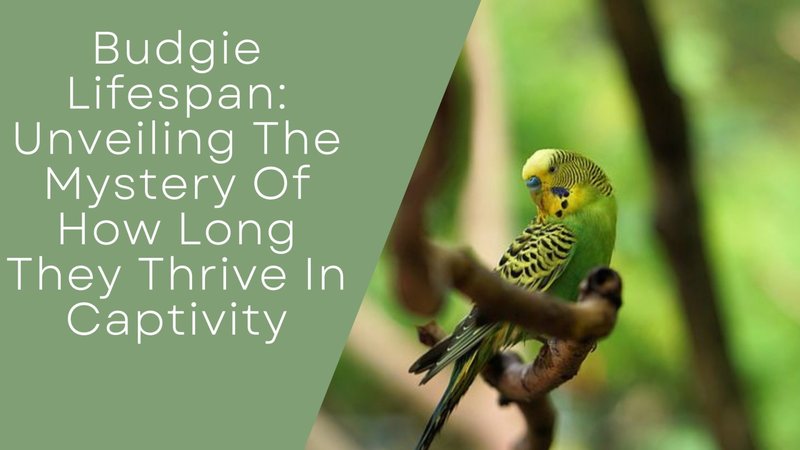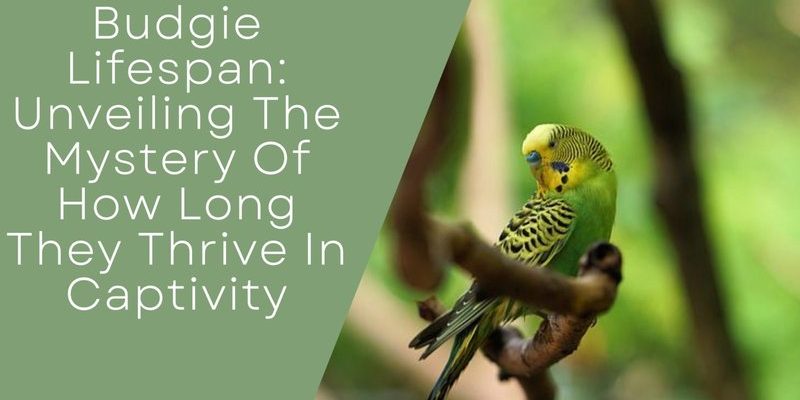
If you’re thinking about welcoming a budgie into your home, you might find yourself wondering, “How long do these little feathered friends actually live?” It’s a totally valid question, and one that many prospective pet owners ask. Budgies, or parakeets as they’re also known, can bring so much joy, but knowing how long they might be around can help you plan for their care and companionship.
Imagine your budgie as a little bundle of color and personality flitting around your home, chirping cheerfully. Just like you’d consider the lifespan of other pets, such as dogs or cats, it’s important to think about how long your new friend might grace your life. In captivity, their lifespan can vary quite a bit, but don’t worry. I’m here to break it down in a way that’s clear and easy to digest. So, let’s dive into the world of budgies and find out how long they usually live when given the right care!
Understanding Budgie Lifespan
To start, it’s important to know that budgies can live quite a while when they’re well taken care of. In captivity, the average lifespan of a budgie ranges from 5 to 15 years. Now, that’s a big range, isn’t it? A lot of factors influence this, and understanding them can help you provide the best possible home for your little friend.
The health and wellness of your budgie play a crucial role in how long they live. Their lifespan can be affected by genetics, diet, environmental conditions, and even their daily mental stimulation. Just like us, good care and a happy environment contribute significantly to a long and healthy life. If you want your budgie to soar through its years with you, it’s essential to consider all these aspects.
The Role of Genetics in Lifespan
Just like humans, a budgie’s lifespan can be influenced by its genetics. If you’re adopting a budgie, it might be worth asking about its lineage. Some breeders focus on health and longevity, while others might prioritize color and markings. The gene pool from which your budgie comes can have a lasting impact on its life.
Not every budgie will follow the average lifespan. Some may live longer, while others may face health challenges. Factors such as inbreeding can also affect their overall lifespan and health. So, when choosing a budgie, consider not just the color of its feathers but also the reputation of the breeder.
Diet’s Impact on Lifespan
Next up is diet! The food you provide plays a vital role in how long your budgie could live. A balanced and nutritious diet can significantly enhance your budgie’s lifespan. Budgies love seeds, but it’s best to provide them with a mix of pellets, fresh fruits, and vegetables as well.
You might think, “But aren’t seeds what budgies eat in the wild?” That’s true, but in captivity,
they need a bit more variety to ensure they get all the necessary vitamins and minerals. Regularly offering leafy greens, berries, and even tiny bits of cooked pasta can make a huge difference. And let’s be honest—your budgie will thank you for the tasty treats!
Optimal Living Conditions
A happy budgie is a healthy budgie! Providing optimal living conditions is crucial for their lifespan. This means giving them a spacious cage—big enough for them to fly around—and keeping it clean. A cluttered or dirty cage can lead to respiratory issues and other health problems.
Here’s the thing: Budgies are social creatures. They thrive on interaction with their owners and even other birds. If they’re bored or neglected, it can lead to stress, which isn’t good for their overall health. Spending time with your budgie, talking to them, and letting them explore outside their cage (in a safe environment) can keep them happy and healthy.
Veterinary Care and Lifespan
Regular veterinary visits are essential to keep your budgie healthy and could ensure a longer lifespan. Just like any pet, they need routine check-ups and vaccinations. A vet can catch potential issues before they become significant problems.
It’s a good idea to find a vet who specializes in birds. They can offer specific advice and care tailored to your budgie’s needs. This might include tips on diet, behavior, and signs to watch out for that could indicate your budgie isn’t feeling well. Investing in their health can pay off in the long run.
Common Health Issues in Budgies
Speaking of health, let’s touch on some common issues that might arise. Respiratory infections, tumors, and feather plucking are just a few conditions that can affect budgies. Keeping an eye out for symptoms like lethargy, changes in eating habits, or unusual vocalizations is crucial.
If you notice any changes, don’t hesitate to reach out to your vet. Early intervention can make a big difference in treatment outcomes. Remember, understanding what’s normal for your budgie is key to spotting potential health issues.
Creating a Stimulating Environment
Keeping your budgie mentally stimulated is just as important as their physical care. Budgies are intelligent creatures, and they thrive when they have toys to play with, things to chew on, and puzzles to solve. Mixing things up with new toys and letting them explore different areas of your home (with supervision) can keep their minds sharp.
Consider setting up a space where your budgie can interact safely with you and other family members. They enjoy being part of the action, and this social interaction can help them feel secure and happy, which can contribute to a longer, healthier life.
Reflecting on how long budgies can live, remember that a lifespan of 5 to 15 years is possible with the right care. By focusing on genetics, diet, living conditions, veterinary care, and mental stimulation, you can make meaningful choices that enhance your budgie’s quality of life.
Taking care of a budgie is a rewarding experience that can bring joy and companionship for many years. So, if you decide to welcome one into your home, know that your love and attention can significantly impact their happiness and lifespan. The more you understand about how to care for them, the brighter their future will be!

